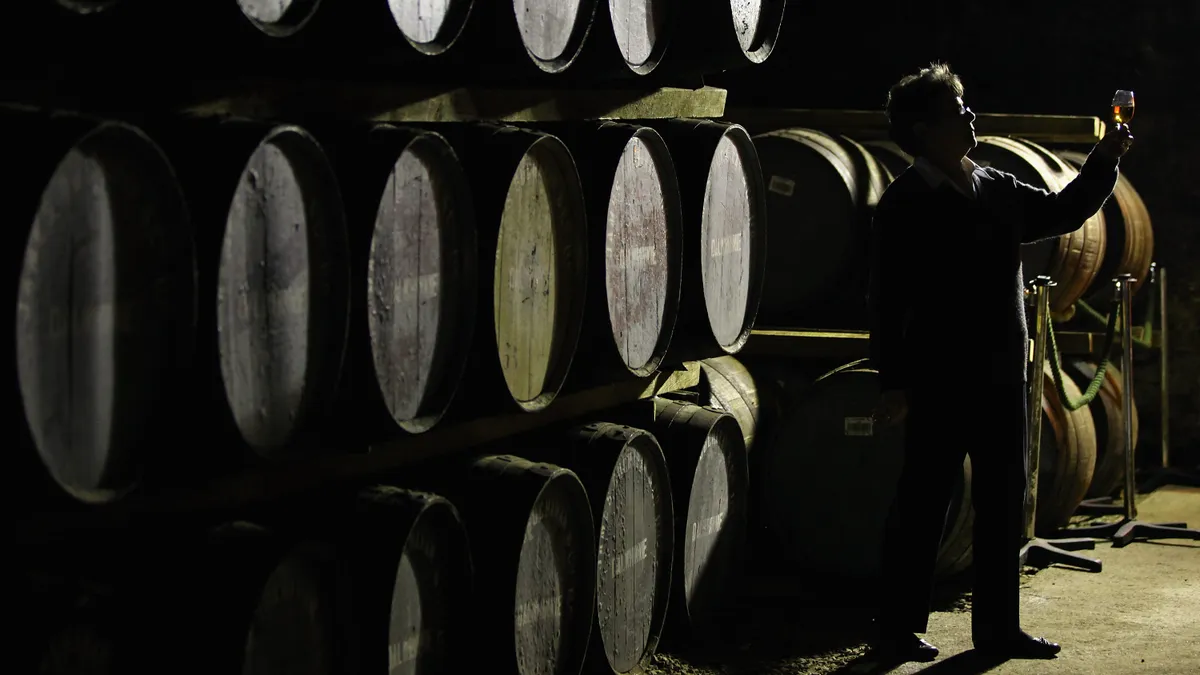Dive Brief:
- Diageo, the second largest distiller in the world, has purchased Vivanda, a flavor-matching service, according to a press release.
- Vivanda created the technology behind the distillers' “What’s Your Whisky” campaign. The technology, known as FlavorPrint, maps consumers preferences across a wide variety of tastes and aromas. After collection, the technology is then able to recommend brands against the consumer’s preferences, helping to streamline drink exploration and offer a clear path to purchase.
- With the acquisition, Diageo plans to integrate FlavorPrint across its business, not just in whiskey. Additionally, the technology will help to provide the distiller with valuable first-party data on its consumers, an increasingly important consideration as Google prepares to phase out third-party cookies.
Dive Insight:
The acquisition of Vivanda will allow Diageo to point consumers firmly in the direction of its offerings while also collecting data on consumer preferences. FlavorPrint will allow Diageo to see what flavors consumers prefer, while also easily gauging which brands are the most valuable with certain age groups. As part of the “What's Your Whisky” campaign, which was launched in 2019, FlavorPoint has not only been used online but in physical stores to help consumers find the Diageo whiskey they may prefer the most. Additionally, FlavorPoint is used in the Journey of Flavor experience at Johnnie Walker Princes Street in Edinburgh.
“We know consumers are looking for more personalized, interactive experiences and that they are increasingly engaging with our brands digitally as well as in person,” said Cristina Diezhandino, chief marketing officer at Diageo, in a press release. “We’re delighted to welcome Vivanda to Diageo and we are looking forward to working together to connect with consumers in more innovative ways that help shape the future of how we socialize in person and virtually.”
Whiskey has a wide and diverse flavor profile. Everything from the wood to how the grain is toasted adds to the flavor, and each brand and vintage is distinct from one another. Some distilleries, such as Diageo’s Talisker 25, are known for their strong peaty tastes, while others, such as Pernod Ricard’s Redbreast 12, are known for being nutty. With so many options at some many different price points, it can take consumers years of trial and error to find their favorite.
Such diversity can make whiskey’s barrier to entry seem insurmountable, especially for young consumers. However, millennial consumers have proved to be incredibly valuable for the aged spirits industry and have been credited with driving significant growth, especially in the Irish whiskey category. As millennials seem willing to spend more money on premium spirits, getting them hooked on a brand they enjoy early on is crucial.
The gamification of the whiskey discovery process not only makes it easy on consumers and provides Diageo with first-party data, but also provides a clear path to purchase. When the test is taken online, links can be provided for digital purchase. If a consumer is in the liquor store, they will already be familiar with the brand and have an expectation of taste, even if they have yet to try it. Diageo will also be able to expand the technology beyond whiskey and into its other categories, such as gin, rum and wine.
As part of the deal, which was funded through cash resources, Vivanda’s team will join Diageo. Vivanda’s founders, CEO Oli Fuchs and CTO Matt Corish, will continue to provide consultancy services.















